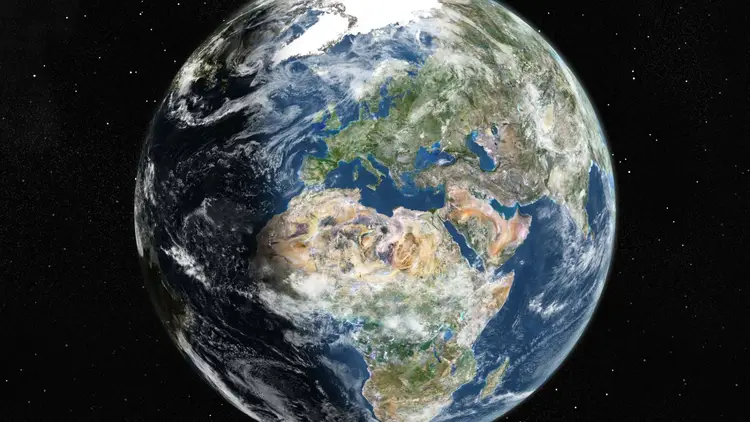Earth has tilted by 31.5 inches and humans are to blame - here's why it matters

Science and Environment Reporter
Researchers have discovered that excessive groundwater extraction by humans has caused the Earth to shift its axis by 80 centimeters eastward in just under twenty years.
Between 1993 and 2010, an astounding 2,150 billion tonnes of groundwater were extracted from beneath the Earth's surface due to intense pumping, as reported by a study published in Geophysical Research Letters.
The water has primarily been utilized for drinking, farming, and raising animals, especially in India and the United States. This has been driven by the increasing demand resulting from the fast-growing global population and the effects of climate change.
Climate change has significantly increased the need for water by altering rainfall patterns, which has made water sources less dependable. Additionally, higher temperatures have led to more frequent droughts and a greater overall requirement for irrigation.
Groundwater refers to the clean water found beneath the earth's surface. When it rains, a significant portion of the water seeps into the ground. This water then moves through the soil and into the underlying rocks in a process known as infiltration.
You can discover groundwater almost anywhere beneath the earth, ranging from just below the surface to depths of 30,000 feet. This water is held in aquifers, which are porous layers that have tiny openings or fractures that enable water to move through them.
It is a valuable resource found in nature that can be utilized for:
How Does Water Pumping Affect Earth's Tilt?
This water ultimately makes its way back to the oceans. It evaporates from the land, falls back to Earth as rain, and flows into rivers, eventually reaching the sea.
Consequently, there has been a significant movement of water across the globe, particularly from northwestern India and western North America, which has spread it into the world's oceans.
This shift has caused it to tilt at a rate of approximately 1.7 inches (4.3 centimeters) annually, resulting in a total change of 78.5 centimeters over the 18 years of the study.
As the Earth rotates, it wobbles slightly like a top that isn't perfectly balanced. The way water is spread across the planet influences the way mass is arranged.
Just like how a slight increase in weight can change the balance of a spinning top, the Earth's rotation is affected whenever water is redistributed. This causes slight shifts in its spin axis, making it wobble and tilt in different ways.
What Does This Mean For Our Planet?
Experts indicate that alterations caused by groundwater extraction, although significant in their own right, are unlikely to affect the changing of seasons or the duration of a day—except possibly by a minuscule fraction of a second every few years.
What's even more important for life on Earth is that the movement of water caused the global sea level to rise by 0.24 inches over the 18 years leading up to 2010.
Although this increase isn't substantial, researchers indicate that the rate at which water is being distributed has noticeably sped up in recent years. They anticipate this pattern will persist, driven by climate change and growing populations that are continuously heightening the need for water.
Additionally, the rising sea levels caused by melting ice due to climate change are having a significant impact. Even small increases in sea level can make a big difference, especially for communities situated at low elevation.











































